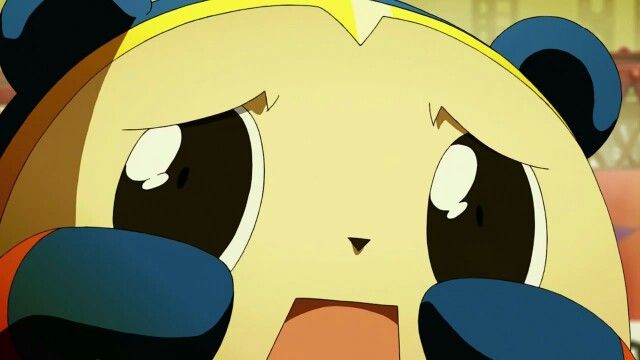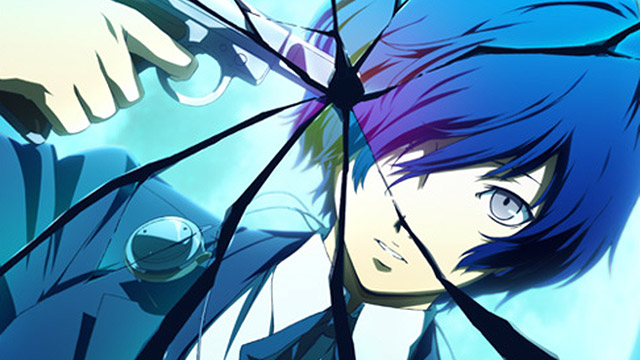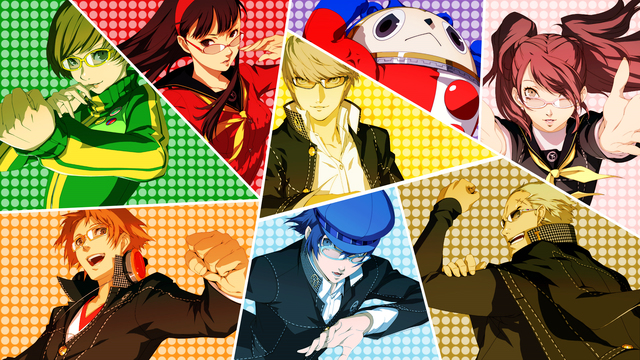Atlus’s Persona series is among the most beloved franchises of all time. Well-known and with no shortage of fans, Persona games are almost a genre unto themselves. A very specific and successful formula is rigorously adhered to: live the life of a Japanese high schooler whilst battling representations of unconscious human thought during your free time.
As with any series, some entries in the Persona franchise have been better than others. And though different fans have different opinions about which one is best, Persona 5 is definitely a front-runner for that title. But which Persona game is the worst of the series? I’d have to say Persona 4.
The Beginning of Persona
Persona 1 and 2 are so removed from the last three main series games that they were not even born in this millennium. They are so different, in fact, that I personally don’t consider them as really being part of the same series as the others. It would be like comparing games from different genres.
The PlayStation 2 saw the rebirth of the franchise with Persona 3 — a game which would come to define what a Persona title was supposed to be. Simulating what it means to be a teenager, Persona 3 has the player balance their high school life, friendships, and story-related drama all within a set amount of time. Take too long, and it’s game over. Waste time or be inefficient, and expect to miss out on content and be weaker for it.
While sometimes brutal, the time-management and life/story balance were monumental in the Persona series’ game design. In fact, these elements proved so popular they continue to form the core of the series to this day. The latest in the series, Persona 5, has become a global phenomenon — catapulting the Persona series from somewhat-niche into mainstream acceptance. This near-perfect game refined what worked, removed what didn’t, and introduced new, exciting elements that both fit and enhanced the entire experience.
So when you consider these factors, what makes its immediate predecessor, Persona 4, the weak link in the chain?

The Weakest Link
With Persona 3 being so groundbreaking and Persona 5 being so excellent, only Persona 4 remains — making it the worst of the series. It’s important to note that “worst of the Persona series” is hardly an insult. Even 4, with its many problems, is an excellent game in its own right. But I believe it’s the true weak link for mainly one reason.
It cannot be denied Persona 4 took the successful formula of 3, yet completely abandoned its tone. Persona 3 remains among the darkest of games I have ever played 00 topped only by a few BioWare and FromSoftware titles. The dark visuals, suffocating atmosphere, and apocalyptic plot all contributed to Persona 3 being such a unique and wonderful experience. In this third iteration, the player witnesses an hour of time frozen where humans transform into coffins, tempted to emerge to their deaths. Each midnight, this horror unfolds. Blood rains from the sky and the city twists into a monstrosity reaching for the sky. And it’s hard to forget that ending — perhaps the most bleak of any game ever. The central theme of Death is quite apparent.
Persona 5, the newest title, is also dark and quite possibly the most mature of the franchise. Clearly 5 was made with an older audience in mind, as there is an abundance of swearing, criminal, and controversial elements, as well as complex psychological themes.
Characters each have their own lives, all filled with very real-world problems. Women are held back by an oppressive traditional society. Outcasts are shuttered away, never to be acknowledged. And everywhere the game’s central theme, Betrayal, permeates. Authority figures abuse their power for their own gain and the strong feed off the weak. If you remove the supernatural elements Persona 5 would play more like a real-world documentary of the worst parts of our society.
Persona 4 stands in contrast to these, as it’s sort of built on fluff. That’s really how the game feels — like light-hearted fluff. It’s a bit contradictory when you consider 4‘s main plot is about finding a murderer. Any seriousness brought by the plot is utterly ruined by the presentation. Light comedy lurks around every corner. Characters bumble through their lives with wacky issues that need solving. Very rarely do serious elements get addressed — and when they do, it’s hardly an accomplishment.
One pertinent example is Kanji — the thug whose sensitive and caring side is held back by society’s need for men to be traditionally masculine. This is a wonderful character premise, but the game Kanji’s characteristics as a lead-in to a “joke” about him being gay. It ruins the spirit of the message.

Bitter Beginnings and Dull Combat
Perhaps one of the most telling aspects of Persona 4 are the protagonist’s backgrounds.
In Persona 5, the sharp and snazzy Joker is the victim of an enormous injustice. Framed for assault after stopping a man from attempting to sexually assault a woman, Joker’s life is destroyed and he is forced to leave the region for one last hope at education.
Persona 3 has its blue-haired protagonist witness his parents burn to death in front of him — forever traumatizing him and desensitizing him so much to death that he almost welcomes it.
But in contrast to these rich stories, Persona 4‘s blandly-drawn hero moves to the countryside to live with his normal uncle and niece because his parents are working overseas. And….that’s it. Keep in mind this tonal difference is before the game even starts — and nothing ever happens in the plot to complicate this premise or bring the game in line tonally with others in the series.
This trend carries over into nearly every facet. Persona 4‘s characters in general seem weaker than the rest of the series. Contrast 3‘s Misato to 4‘s Teddy and 5‘s Morgana. Only one is a bundle of slapstick chibi humor.
The main plot is hardly as engaging or deep, either. Discover the mysteries of the midnight hour and the horrors within Persona 3. Fight society’s corruption by forcing criminals in positions of power to admit their own crimes while working to rebuild your shattered life and explore another world in Persona 5. Or finally investigate who is throwing some people into a TV in Persona 4. When you hold these plots up against each other, the comparisons speak for themselves.
As if that’s not enough, combat in Persona 4 is a literal copy of its predecessor with no improvements. You’ll see the same randomized levels, the same enemy types, the same attacks, the same “weapons”, etc. While you could finally choose your party member’s attacks, it never was as important as the desperate flailing to hit the enemy first before battle.
And I swear, if I ever have to hear Persona 4‘s battle music again I may self-induce deafness. It’s chirpy, joyous, pop-esque battle theme really hammers home that this is a lighter game.

I admit that enjoyment is subjective, and there are those that do not want a dark Persona game. If that’s the case for you, then 4 is the only game that you’ve probably enjoyed because the Persona series is by its nature a dark, dark series.
I don’t have anything but respect for those that enjoy lighter games. Gaming should always strive to be more inclusive, because a larger audience means a healthier industry and more quality products.
Persona 4 diverged from the usual Persona path and 5 pulled it back on. But during that detour, it was still a great experience. That’s why I’m happy to say that while Persona 4 may be the worst in the series, it’s still very good indeed.







Published: Sep 1, 2017 05:11 am